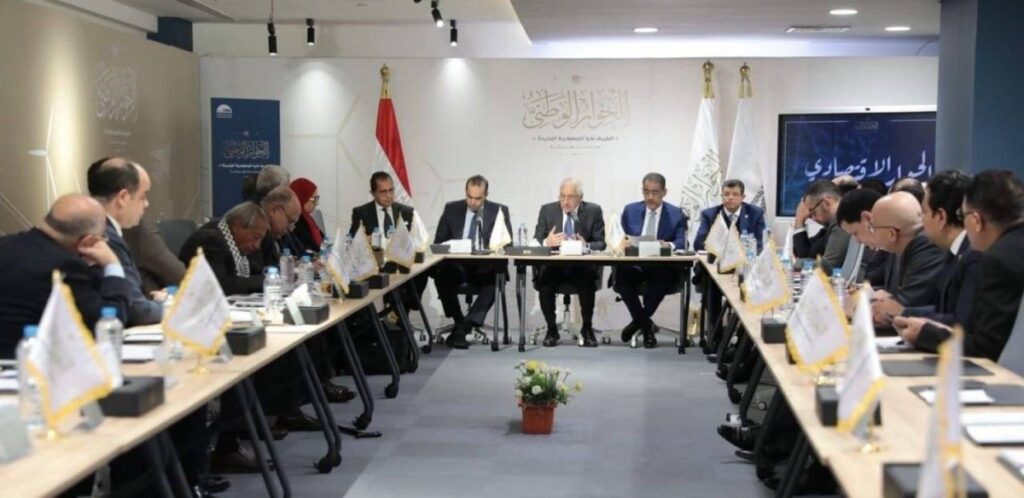Egypt’s National Dialogue Addresses Economic Crisis Amid Rising Prices and Inflation
Egypt’s National Dialogue has launched its second round of sessions, turning a critical eye toward the country’s ongoing economic crisis. With high prices, rampant inflation, and escalating public debt as central themes, the urgent need for viable solutions has never been more pronounced.
On Monday, closed sessions focusing on economic issues commenced, featuring robust participation from government officials and experts alike. The opening day was packed with three intensive discussions. The first session honed in on inflation and market instability, the second on production and export challenges, while the third session delved into monetary policies and the severe shortage of dollars and foreign exchange.
The sessions are set to run until Thursday, addressing a plethora of economic issues, including public debt, budget deficits, public investment priorities, state ownership policy, and social justice, according to the Board of Trustees of the National Dialogue.
Seeking Solutions for an Ailing Economy
The Board of Trustees issued a press statement on Monday highlighting the scope of the discussions and the aim to develop actionable recommendations. Gouda Abdulkhaliq, a board member, emphasized the urgent need for solutions that can mitigate the impact of high prices on everyday Egyptians. Among the immediate suggestions were classifying certain goods as strategic items and ensuring their availability at reasonable prices.
Moreover, Abdulkhaliq pointed to the necessity of setting a binding price cap for these goods, which would be pegged to production costs plus a reasonable profit margin. Another bold recommendation involves a full exemption of essential food commodities from all forms of taxes and fees until the crisis is alleviated. The board also pushed for fair pricing of essential government services like electricity and water, alongside a call to enhance market oversight to prevent monopolistic practices.
Government Commitment and Coordination
Another board member, Talaat Abdel Qawi, stressed the importance of focusing on issues that resonate with the general populace, such as high prices and market instability. These focus areas are believed to encourage substantial government participation and build consensus around specific, actionable proposals to address the crisis.
Adding a layer of gravity to the sessions, Prime Minister Mostafa Madbouly met with the Board of Trustees on Sunday. He emphasized that the general and specialized sessions within the National Dialogue are crucial for identifying the nation’s priorities moving forward.
Madbouly further announced the formation of a dedicated working group from the Technical Office of the Prime Minister and the Information and Decision Support Center. This group will liaise with relevant ministries to ensure the proposals from the National Dialogue are implemented effectively.
Historical Context and Future Outlook
This National Dialogue is grounded in an initiative launched about two years ago by President Abdel Fattah El-Sisi, who called for a comprehensive dialogue encompassing all political forces, save for the banned Muslim Brotherhood. The initiative’s main objective was to devise strategies for addressing national priorities.
The recommendations from the first round of the dialogue, which took place in May of last year, have already been submitted to the President, signaling a commitment to follow through on the discussions.
As Egypt grapples with one of the most severe economic crises in recent history, the outcomes of these dialogue sessions could potentially lay the groundwork for substantial reforms. The involvement of high-ranking government officials and the structured framework of these discussions underscore the urgency and seriousness with which these economic challenges are being addressed.
For more information, visit the official website of the Egyptian Presidency.
The coming days will reveal whether these collaborative efforts can translate into tangible relief for Egypt’s beleaguered citizens, as the nation collectively strives for economic stability and growth.
